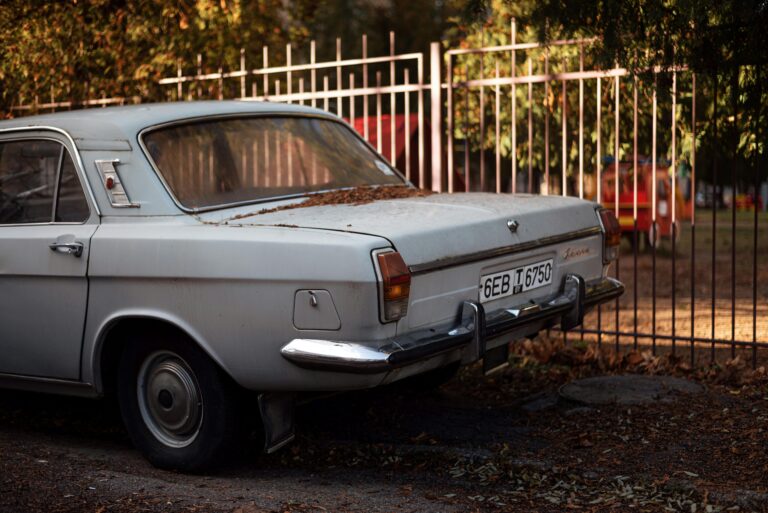Used Cars for Sale by Private Owner
Looking for reliable used and private seller cars. Find our selection of pre-owned vehicles mentioned in car listings for sale by private owners.
Skip the dealership hassle and deal directly with individuals looking to sell their well-maintained cars. Whether you’re in search of used cars for sale by a private owner like Titan Auto Group or a specific make and model, our listings offer a variety of choices to suit your needs. From compact cars to SUVs, find the perfect vehicle at a competitive price.
Browse through our curated collection and connect with sellers to negotiate a deal that works for you. Get behind the wheel of your next ride without the fuss, only with private owner listings.

Private Owner of Used Cars

Private owners play a crucial role in the used car market, offering unique advantages and considerations compared to buying from dealerships or other sources. Their role encompasses various aspects, including market dynamics, average price, transparency, and the overall customer experience.
One of the primary roles of private owners in the used car market is to provide a diverse range of vehicles with luxury features. Private sellers often offer a wide selection of new cars, spanning different makes, models, years, and price ranges. This diversity allows buyers to find various options and find a vehicle that best fits their needs and budget. Unlike dealerships that may specialize in specific brands or models, private owners offer a more eclectic mix of cars, increasing the chances of finding a suitable option.
Moreover, private owners can offer competitive pricing compared to dealerships. Since they don’t have overhead costs associated with running a dealership, such as showroom expenses or sales commissions, private sellers can often sell their vehicles at lower prices. This affordability is particularly attractive to budget-conscious buyers looking to get the most value for their money.
Transparency is another essential aspect of the private owner’s role in the used car market. Unlike some dealerships that may withhold certain information or employ sales tactics to influence buyers, private sellers tend to be more transparent about the condition of their vehicles. They typically provide detailed descriptions, maintenance records, and vehicle history reports to help buyers make informed decisions. This transparency fosters trust and confidence in the transaction, leading to smoother negotiations and fewer surprises down the road.
Furthermore, private owners offer a personalized and direct buying experience. When purchasing from a private seller, buyers have the opportunity to interact directly with the person who has owned and cared for the vehicle. This direct communication allows buyers to ask questions, gather additional information, and even negotiate terms face-to-face. Such personal interactions can create a more pleasant and satisfying buying experience compared to dealing with sales representatives at a dealership.
However, there are also considerations and potential challenges associated with buying from private owners. For instance, private sales may lack certain protections and warranties typically offered by dealerships. Buyers must conduct thorough inspections and due diligence to ensure they’re making a sound investment. Additionally, private transactions may involve more paperwork and administrative tasks compared to purchasing from dealerships, as buyers and sellers are responsible for handling legal requirements independently.
Furthermore, private owners play a vital role in the used car market by offering a diverse selection of vehicles, competitive pricing, transparency, and a personalized buying experience. While there are considerations and potential challenges associated with buying from private sellers, many buyers appreciate the benefits and opportunities that come with purchasing a used car directly from an individual owner.
Call Now For Pre-Qualification Info
How to Buy Used Cars from Private Seller
Before starting your search for a used car for sale by owner, determine your budget and the type of brand you’re looking for. Consider factors such as make, model, year, mileage, and features.
By following these steps, you can successfully navigate the process of buying a used car from a private seller. Remember to conduct thorough research, inspect the vehicle carefully, negotiate effectively, and complete all necessary paperwork to ensure a smooth and satisfactory transaction.

Step 1: Research and Set a Budget
Either for old or new cars, before starting your search, determine your budget and the type of car you’re looking for. Consider factors such as make, model, year, mileage, and features. Research the market value of the vehicles you’re interested in to ensure you’re setting a realistic budget.
Step 2: Search for Listings
Utilize online platforms such as Craigslist, Facebook Marketplace, Autotrader, or local classified ads to find used cars for sale by private sellers. Narrow down your search based on your preferences and budget.
Step 3: Review Listings Carefully
Thoroughly review each listing, paying attention to details such as the vehicle’s make, model, year, mileage, condition, price, and any included features or extras. Look for comprehensive descriptions and clear, high-quality photos.
Step 4: Contact Sellers
Reach out to the sellers of the vehicles you’re interested in to ask questions and schedule viewings or test drives. Inquire about the car’s maintenance history, accident history, any issues or repairs, and the reason for selling.
Step 5: Inspect the Vehicle
Arrange to inspect the car in person, preferably during daylight hours and in good weather conditions. Perform a thorough inspection, checking both the interior and exterior for any signs of damage, wear, or mechanical issues. Test drive the car to assess its performance and handling.
Step 6: Request Documentation
Ask the seller for documentation related to the vehicle, including the title, registration, maintenance records, and any warranty information. Verify that the VIN (Vehicle Identification Number) matches the documents and hasn’t been tampered with.
Step 7: Negotiate the Price
If you’re satisfied with the condition of your dream car, negotiate the price with the seller. Use your research on market value and the car’s condition to make an informed offer. Be prepared to walk away if the seller isn’t willing to meet your price or negotiate further.
Step 8: Arrange Payment
Once you’ve agreed on a price, arrange payment with the seller. Consider using a secure method such as a cashier’s check, a money order, or an electronic transfer. Avoid paying in cash if possible, as it can be difficult to trace in case of disputes.
Step 9: Complete Necessary Paperwork
Complete all necessary paperwork to transfer ownership of the vehicle. This typically includes signing the title, completing a bill of sale, and transferring the registration. Ensure that all documents are filled out accurately and are legally binding.
Step 10: Finalize the Sale
After completing the paperwork and payment, finalize the sale by obtaining the keys and any additional items related to the vehicle, such as spare keys or maintenance records. Make sure to obtain a signed receipt or confirmation of the sale for your records.
Step 11: Transfer Ownership
Visit your local Department of Motor Vehicles (DMV) or equivalent agency to transfer ownership of the vehicle. Submit the necessary paperwork, pay any required fees, and obtain new registration and license plates in your name.
Step 12: Insure the Vehicle
Before driving the car, ensure that it is properly insured. Contact your insurance provider to add the vehicle to your policy or arrange for coverage if you don’t already have insurance.
Call Now For Pre-Qualification Info
What Essential Documents are Required for Buying Used Car for Sale?
There are many essential documents for buying used cars for sale by private owners that can make the smooth and legal and avoid the inconvenience. Here are the essential documents you’ll need:

Title (Certificate of Title)
The title is perhaps the most critical document when purchasing a used car. It proves ownership of the vehicle and contains information such as the vehicle identification number (VIN), make and model listings, and the owner’s name. The seller must sign the title to transfer ownership to the buyer. Ensure that the title is free of any liens or encumbrances.
Bill of Sale
A bill of sale is a written agreement that documents the sale of the vehicle between the buyer and the seller. It includes details such as the purchase price, VIN, make, model, year, and signatures of both parties. A bill of sale serves as legal proof of the transaction and is essential for registering the vehicle in the buyer’s name.
Vehicle Registration
Another requirement you should always look for, before considering what used cars buy under 1000, the seller should provide the current vehicle registration document. This document confirms that the car is registered in the seller’s name and is up-to-date with registration fees. The buyer will need the registration to transfer ownership and register the vehicle in their name.
Maintenance Records
While not mandatory, maintenance records of specific models can offer valuable insights into the vehicle’s service history and overall condition. Ask the seller for any maintenance records, receipts, or documentation related to repairs and servicing performed on the car.
Vehicle History Report
Consider obtaining a vehicle history report from services like Carfax or AutoCheck. This report provides information about the car’s past, including its ownership history, accident history, title status, odometer readings, and more. A vehicle history report helps buyers make informed decisions and identify any potential issues with the vehicle.
Odometer Disclosure Statement
In many jurisdictions, sellers are required to provide an odometer disclosure statement confirming the accuracy of the mileage displayed on the vehicle’s odometer. This statement helps prevent odometer fraud and ensures transparency in the transaction.
Release of Liability
Some states require the seller to submit a release of liability form to the Department of Motor Vehicles (DMV) or an equivalent agency. This form notifies the DMV that the seller is no longer responsible for the vehicle especially if bought from the car lot, protecting them from legal and financial liabilities after the sale.
Call Now For Pre-Qualification Info
Advantages of Selling Used Cars by Private Party
Selling a used car privately offers several advantages compared to trading it in at a dealership or selling it to a car-buying service. Including the potential for a higher sale price, greater control over the sales process, and the ability to interact directly with buyers. While it may require more effort and time compared to trading in at a dealership,
Here are some of the key benefits of selling a used car by a private party:

Higher Sale Price
One of the most significant advantages of selling a 1000 dollar used car privately is the potential to fetch a higher sale price compared to trading it in at a dealership. Private sellers have more control over the pricing options of their vehicles and can negotiate directly with buyers to secure a fair price based on the car’s condition, mileage, and market demand.
Avoidance of Trade-In Hassles
Selling a car to a dealership typically involves negotiating a trade-in value, which may not always reflect the true worth of the vehicle. By selling privately, sellers can avoid the hassle of negotiating trade-in offers and potentially receive a better return on their investment.
Flexibility in Negotiation
Private sellers have the flexibility to negotiate the terms of the sale directly with buyers. This includes negotiating the sale price, payment method, and any additional terms or conditions. Sellers can tailor the negotiation process to their preferences and prioritize factors that are important to them.
Direct Interaction with Buyers
Selling a used car privately allows sellers to interact directly with potential buyers. This direct communication fosters trust and transparency in the transaction, as sellers can answer questions, provide additional information, and address concerns in real time. Building a rapport with buyers can also help expedite the sales process and increase the likelihood of a successful sale.
Control Over Advertising and Marketing
Private sellers have control over how they advertise and market their vehicles. They can choose where to list their car for sale, create detailed listings with photographs and descriptions, and target specific audiences. This control allows sellers to maximize the visibility of their listing and attract interested buyers more effectively.
No Sales Commission or Fees
Unlike selling to a dealership or consignment service, selling a used car privately typically involves minimal or no sales commissions or fees. Sellers can keep the entire proceeds from the sale, maximizing their return on investment.
Potential for Faster Sale
In some cases, selling a used car privately may result in a faster sale compared to trading it in at a dealership. Private sellers can list their vehicles for sale online and reach a wide audience of potential buyers quickly. Additionally, buyers may be more motivated to purchase from a private seller if they perceive the transaction to be more straightforward and transparent.
Call Now For Pre-Qualification Info
Conclusion
Purchasing a used car from a private owner offers numerous advantages, including competitive pricing, personalized service, and a wide selection of vehicles. By following the necessary steps, conducting thorough research, and ensuring all essential documents are in order, buyers can navigate the process confidently and secure a reliable vehicle at a fair price. With transparency, direct communication, and flexibility in negotiation, buying from a private owner can result in a satisfying and rewarding experience. Whether you’re searching for a budget-friendly option or a specific make and model, private owner listings provide an excellent opportunity to find your next car hassle-free.






